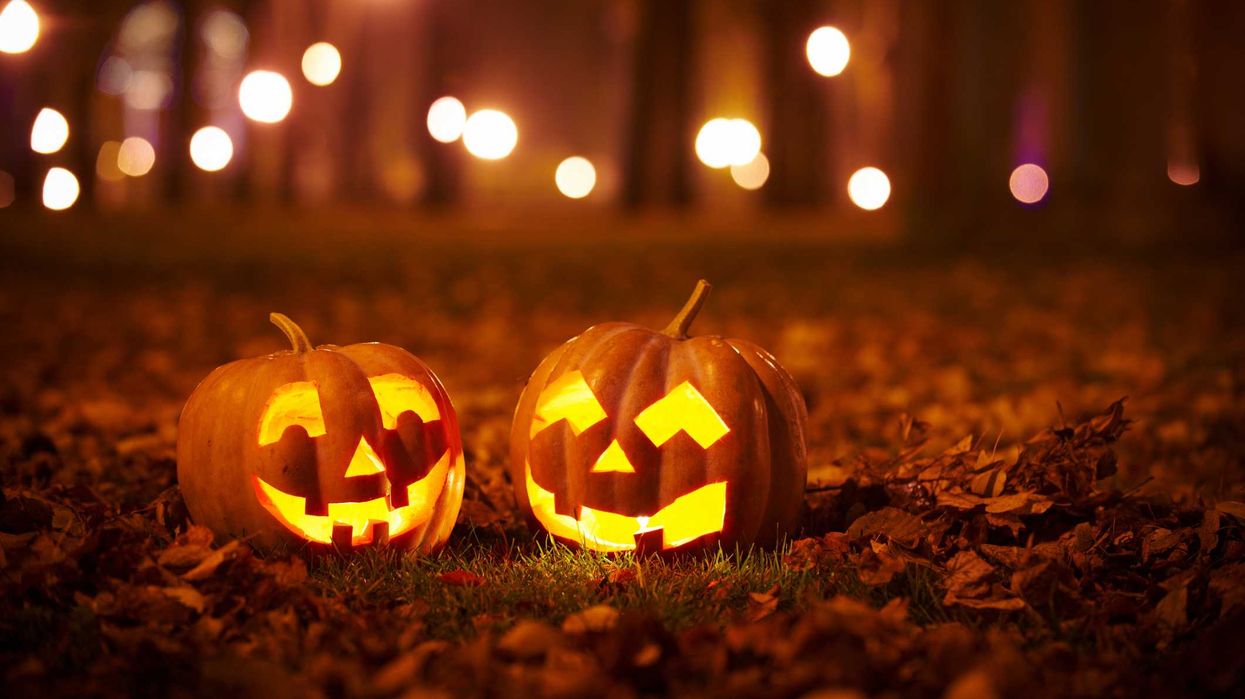
sandsun/iStock/Getty Images Plus

If you think Halloween is evil, don't hunker down in your house with all the lights out.
As October comes to a close, "spooky season" is in full form. Stores are packed with Halloween candy, costumes, and decorations.
Some Christians reject Halloween as synonymous with evil. But why is that? And what is the best way for Christians to respond to Halloween?
Make no mistake: Every day on the calendar belongs to God, and none of them belong to anyone else, including the devil.
The pagan Celts of ancient Ireland celebrated the new year on Nov. 1. So, much like we celebrate the night before New Year's Day, they celebrated the night before (Oct. 31), too.
They called it "Samhain" — a night when they believed the dead in the form of ghosts could return to walk the earth. The Celts built huge bonfires, dressed in costumes to disguise themselves from the ghosts, and made lanterns out of gourds (like pumpkins, although they likely used different gourds). The fires attracted many insects, which attracted bats.
When the influence of the Catholic church began extending into pagan lands, sometimes the two cultures influenced each other. The Catholics celebrated All Saints' Day on Nov. 1 — also known as "All Hallows Day" — which was an occasion to remember the dead, who are supposedly now in heaven.
So Samhain eventually came to be known as "All Hallow's Eve" or Halloween. And the bats, ghosts, costumes, and jack-o-lanterns made of gourds — the trappings of Samhain — continued to be part of the celebration.
In medieval Britain, a practice called “souling” emerged, where the poor would go door-to-door on Nov. 1 or Nov. 2, offering prayers for the dead in exchange for food, often “soul cakes.”
In Scotland and Ireland, a parallel tradition called “guising” developed in which children and young adults disguised themselves in costumes or masks, supposedly to mimic or hide from wandering spirits, and went door-to-door performing songs, poems, or tricks in exchange for food, nuts, or coins.
The term “guising” comes from “disguise,” reflecting the costume element in modern trick-or-treating.
History is important. But so is understanding what is happening now.
In the U.S., Halloween is primarily about one thing: trick-or-treating. Kids love dressing up in costumes and getting free candy, which is why we start seeing Halloween candy displays about 10 minutes after school starts in the fall — if not earlier.
Trick-or-treating is, of course, driven by commercial candy manufacturers, who make a significant portion of their profit from Halloween-related sales of their highly processed, terrible-for-everyone, garbage candy, which is full of dyes and additives (save us, MAHA!). That’s an “evil” we don’t hear enough about.
But there are those who see evil in every Halloween nook and cranny. Those who proclaim it "Satan's day" and a peak time for witchcraft and other evil doings. This seems to be based in great part on alleged comments from satanists and witches that I see posted on social media every October — comments thanking Christians for allowing their children to worship Satan one day a year by trick-or-treating.
That’s stupid. Why would we believe or listen to anything self-proclaimed devil worshippers say?
Make no mistake: Every day on the calendar belongs to God, and none of them belong to anyone else, including the devil. I don't deny people could choose Oct. 31 in particular to celebrate evil. However, for the vast majority of Americans, Halloween is about strolling the neighborhood in costume and collecting candy.
Our highest calling is to love God and love our neighbor. And Halloween brings those neighbors to our door, literally. What if we prayerfully and thoughtfully considered how we can bless those neighbors on Halloween with an eye toward building relationships?
I'm not talking about handing out Christian tracts instead of candy. Don't be that person. But I am talking about eagerly seeking opportunities to connect with at least one if not more families in your neighborhood with whom you can begin to build relationships.
This, in fact, is why God has you where you live.
Let me tell you about what one family did for Halloween. They set up a pole tent in the driveway, hung lights from it, and under the tent placed their BBQ grill on which they cooked hot dogs. A table held buns and condiments, a bowl of Halloween candy, and jello shots for the adults. They publicized this on the neighborhood webpage a day or two before Halloween.
To be clear, they weren't Christians seeking to love their neighbor. They were seeking to promote the father's business. But how might we promote our heavenly father's business similarly?
Here are some ideas:
This will cost you time, effort, and money. But it's a ministry investment in the lives of precious people God has placed in your neighborhood. You can't love them if you don't make an effort to know them, and you can't know them if you never even meet them.
You could also just set out lawn chairs toward the end of the driveway where you will be able to actually see and converse with the adults as you pass out candy. Compliment the kids' costumes. Ask the adults where they live in the 'hood. They won't linger long without a reason to stop at your house, but at least you'll physically meet some of them.
If you think Halloween is evil, don't hunker down in your house with all the lights out. Unless you live somewhere with no trick-or-treaters, get out there and redeem it.
Halloween is an opportunity for your family to bless others and begin forging relationships with lost people in need of Jesus, all by being a good neighbor.
This article was adapted from an essay originally published on Diane Schrader's Substack, She Speaks Truth.
Diane Schrader